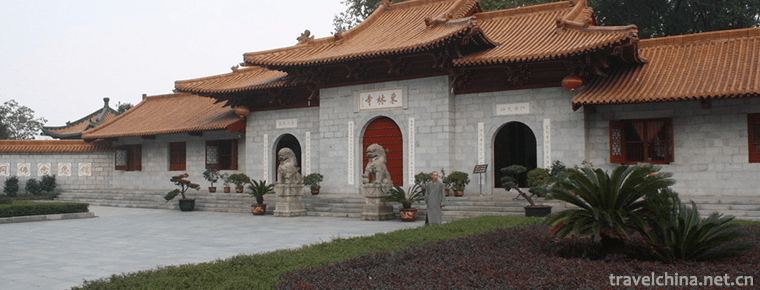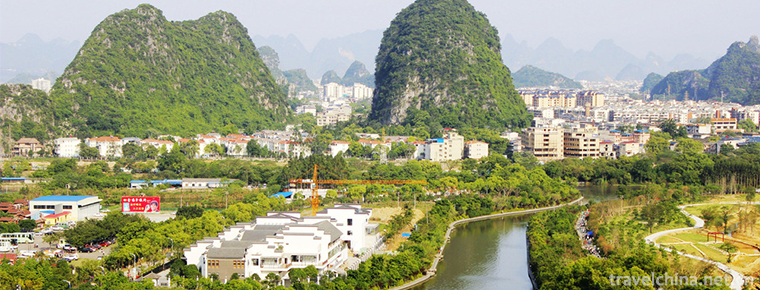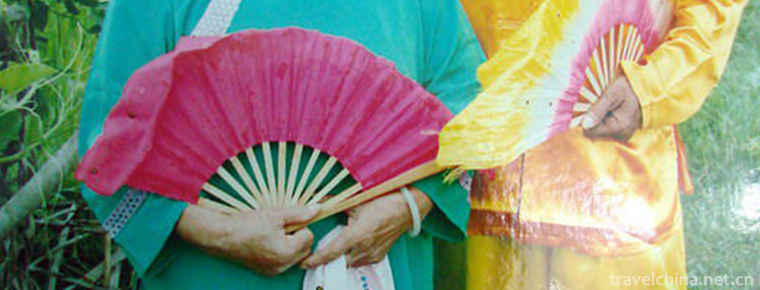Beijing Language and Culture University
Beijing Language and Culture University
Basic information
Beijing Language and Culture University, established in 1962 under the personal care of Premier Zhou Enlai, is a university directly under the Ministry of Education of China. In June 1964, it was named Beijing Language Institute. In 1974, Chairman Mao Zedong wrote the name of the school. In June 1996, it was renamed Beijing Language and Culture University. In 2002, the name of the school was simplified to Beijing Language and Culture University.
Beijing Language and Culture University is the only international university in China with the main task of Chinese language and Chinese culture education for foreign students. It is known as the "Little United Nations".
The school educates Chinese students in foreign languages, Chinese, information science, economy and art. It also undertakes the task of training Chinese teachers and foreign language training for preparatory personnel for studying abroad. After more than 50 years of development, Beiyu has developed into a comprehensive international university with the characteristics and advantages of language and culture education and language and culture research. It is the academic center of Chinese and foreign language and culture research and the cradle of training outstanding talents in various fields. In 2019, the University made clear the goal of building a world-class language university with Chinese characteristics and the strategic deployment of "three steps" in the new era.
Knowledge Bei
Beijing Language and Culture University has the longest history, the largest scale and the strongest faculty in international Chinese education and Chinese culture education. So far, the school has trained nearly 200,000 foreign students who understand Chinese and are familiar with Chinese culture for 183 countries and regions in the world. Many of these alumni have become well-known figures in academic, political and business circles. Former Under-Secretary-General of the United Nations and Director-General of the United Nations Office at Geneva, Kassem Tokayev, President of Ethiopia, Mulatu Teshome Votu, Chairman of the National Security Council of the Republic of Kazakhstan, Karim Masimov, Deputy Foreign Minister of Russia, Igor Morgorov, German Sinologist Gu Bin, American physicist, Nobel Prize winner Eric Cornell and other well-known people have studied Northern Language. In addition, Beiyu has trained hundreds of thousands of outstanding talents for China, including a large number of public overseas students who have received special foreign language training in the Ministry of Training for Overseas Students, and now they have become pillars in various fields of the country.
Since the 1990s, on the one hand, Beiyu has maintained its characteristics and advantages in the field of international Chinese education, on the other hand, it has actively developed related disciplines, covering eight categories: literature, economics, law, engineering, history, pedagogy, management and art. There is now a postdoctoral mobile station and a doctoral degree authorization. There are 2 first-level disciplines, 17 second-level disciplines authorized by doctoral degree, 6 first-level disciplines authorized by master's degree and 5 master's professional degree. Among them, there are 1 national key discipline, 10 key disciplines in Beijing and 2 high-end and cutting-edge disciplines in Beijing.
At present, the school has three departments, nine directly affiliated colleges (departments, teaching departments) and eight scientific research institutes, namely, the Ministry of International Chinese Education (including Chinese College, Chinese Institute for Advanced Studies, Chinese Academy of Preparatory Education, Chinese Teaching and Research Base, Chinese Academy), and the Ministry of Foreign Languages (including English College, Advanced College). School of Translation, College of Applied Foreign Languages, School of Oriental Language and Culture, School of Western Language and Culture, Middle East College, National and Regional Research Institute, Department of Humanities and Social Sciences (including Chinese Education College, Humanities College, International Relations College, Political College, School of Journalism and Communication); School of Information Science, Business School, Ma Kersinism College, Arts College, Language Rehabilitation College (including Institute of Language Pathology and Brain Science), Department of Linguistics, Training College, Network Education College, Department of Physical Education; Chinese International Institute of Education, Academy of Language Science, Chinese Academy of Culture, Center for Excellent Innovation in Language Resources, International Student Education Administration Research Institute of Policy and Evaluation, Economic Research Institute, Innovation and Intelligence Introduction Base of Language Cognitive Science and International Communication Research Institute of Chinese Calligraphy.
The school currently has 13 research centers (or bases) at or above the provincial and ministerial levels, of which the Chinese Institute of International Education is one of the 100 key research bases of Humanities and social sciences of the Ministry of Education, the Arab Research Center is the key cultivation base of national and regional research of the Ministry of Education, and the National Language Resources Monitoring and Research Plane Media Center is the national center. The Chinese Language and Character Standards Research Center is the position of the State Language Commission to develop and revise the language and character standards. The Chinese Language Resources Protection Research Center is the professional organization of the State Language Commission to implement the national project for the protection of language resources. The International Chinese Language Teaching and Research Base is the National Chinese Language Standards Research Base. To set up one of the first ten research bases for international promotion of Chinese, the Center for Foreign Translation and Communication of Chinese Culture is a platform for mutual translation and cooperation between Chinese and foreign cultures invested by the Ministry of Culture. The Capital International Cultural Research Base and the Beijing Document Language and Cultural Heritage Research Base are the key research bases of philosophy and Social Sciences in Beijing. The Center for Innovation of High-quality Language Resources is the only language center in the "Center for Innovation of High-quality Colleges and Universities in Beijing" constructed by the Beijing Education Commission. The Center for Applied Research of Chinese Ethnic Language is an applied research institution of national language supported by the National Commission for Nationalities. The base of international education and cultural dissemination of Chinese medicine is based on it. The Guangming Literary Heritage Research Institute, a characteristic base established by the State Administration of Traditional Chinese Medicine, is a research institution jointly established with Guangming Daily. In addition to provincial and ministerial research centers (or bases), there are 33 school-level research institutions in our university, such as "Confucius Institute Sustainable Development Co-innovation Center" and "China's surrounding language and culture co-innovation center".
International language
With the continuous expansion of China's foreign exchanges and cooperation, the connection between schools and the world has become increasingly extensive and close. At present, we have established cooperative and exchange relations with 359 universities and educational institutions in 61 countries and regions in the world, forming an all-round, multi-field, deep-seated and fruitful international educational pattern. The school cooperates with Harvard University to set up Harvard Beijing College. Bangkok College was established in Thailand and Tokyo Campus in Japan. The school jointly runs schools in various forms, and carries out joint training programs for undergraduates or postgraduates with more than ten foreign universities, such as Webster University, George Mason University, Constantz University of Applied Sciences in Germany and Manchester University in the United Kingdom. He has hosted 18 Confucius Institutes and 2 Confucius Classrooms and has been awarded "Advanced Chinese Cooperative Institutions". In recent years, an average of about 100 teachers teach abroad every year, more than 400 students go abroad to exchange and study, and receive more than 1500 foreign visitors every year.
Academic northern language
The school edits and publishes such publications as World Chinese Teaching, Language Teaching and Research, Chinese Cultural Studies, International Chinese Teaching and Research, Sinological Studies, Linguistic Planning Studies, Documentary Linguistics, Journal of Chinese International Education and National and Regional Studies.
All kinds of textbooks published by school publishing houses have a wide impact at home and abroad, and nearly 100 countries'colleges and training institutions use the textbooks published by Beijing Language and Culture University for teaching Chinese as a foreign language.
(Source: Data from the President's Office of Beijing Language and Culture University as of July 2019)
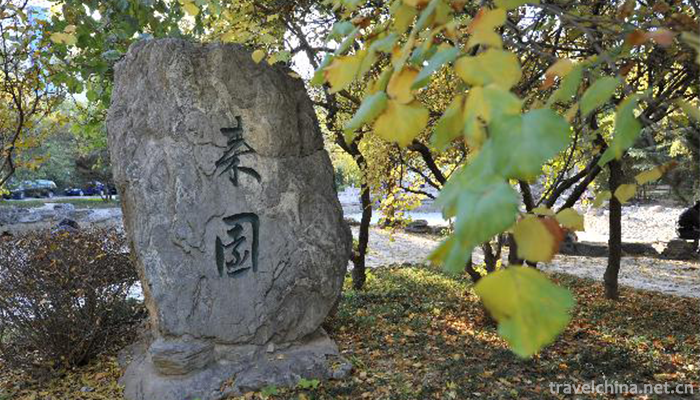
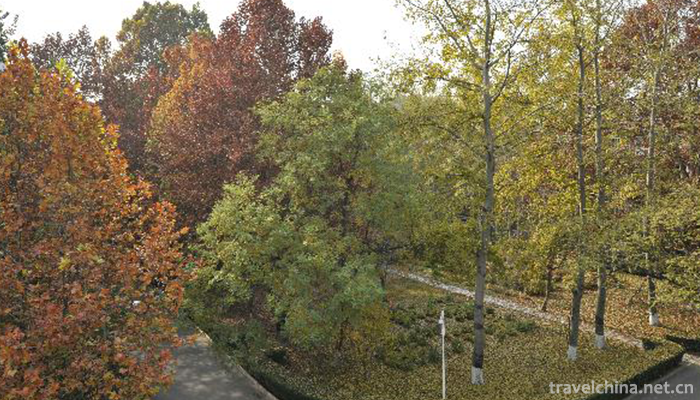
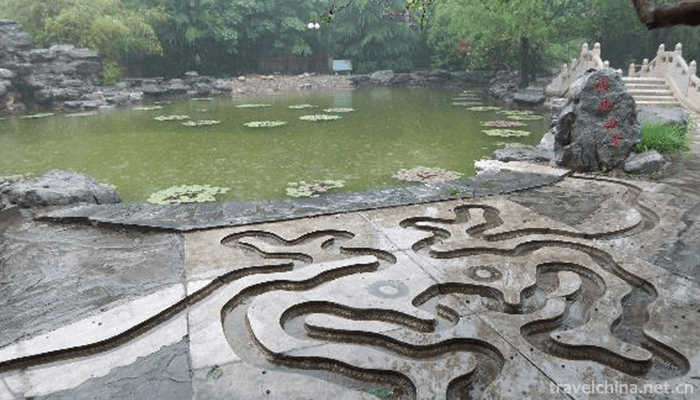
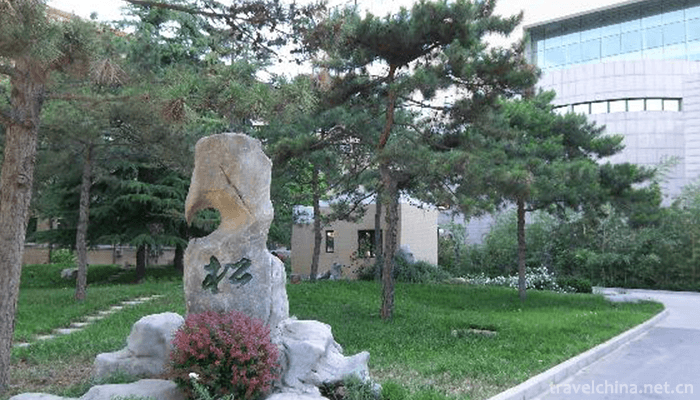
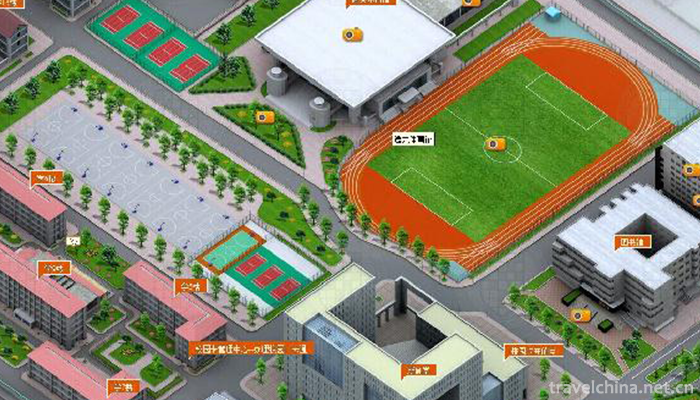

Beijing Language and Culture University
-
The longji yao and zhuang ethnic terrace
Views: 296 Time 2018-10-12 -
Chinese bacon
Bacon refers to processed meat processed by salting and then baked...
Views: 173 Time 2018-10-12 -
Xiangsha Bay Scenic Spot in Dalat Banner Ordos
Xiangsha Bay was opened as a tourist attraction in January 1984, listed as a national line scenic spot by the National Tourism Administration in 1991
Views: 268 Time 2018-11-29 -
Donglin Temple
Donglin Temple, located at the foot of Lushan Mountain, Jiujiang City, Jiangxi Province, is 16 kilometers north of Jiujiang City and 50 kilometers east of Lushan Luling Street. Because it is east of X
Views: 162 Time 2018-12-20 -
Jiangwan Scenic Area of Wuyuan
Jiangwan Scenic Area is located in the northeast of Wuyuan County, Jiangxi Province, Shangrao City. It is an ancient village with rich Huizhou culture. Up to now, the village has preserved a large num
Views: 225 Time 2019-01-21 -
Kunyu Mountain National Forest Park
Kunyushan National Forest Park is located in Mouping District, Yantai City, Shandong Province. It covers an area of 48 square kilometers and belongs to warm temperate monsoon
Views: 315 Time 2019-01-29 -
Production Techniques of Dezhou Braised Chicken
Dezhou Grilled Chicken is a kind of poultry meat product cooked slowly in small fire. It is originally produced in Dezhou City, Shandong Province. It is also known as Dezhou Wuxiang Boneless Grilled C
Views: 298 Time 2019-04-26 -
Guanyin legend
Guanyin legend is one of the ancient local folklores in Zhoushan, Zhejiang Province. It is one of the second batch of national intangible cultural heritage list published by the State Council.
Views: 157 Time 2019-05-01 -
Hebei Bangzi
Hebei Bangzi is an important branch of Bangzi vocal cavity in China. It was formed in the Qing Dynasty (1821 - 1850), and entered a prosperous period in the early years of Qing Guangxu
Views: 176 Time 2019-05-02 -
Leizhou song
According to the records in historical books, Leizhou songs were prevalent as early as the Song Dynasty. After the 1990s, people divided Leizhou dialect into different rhymes to express different cont
Views: 99 Time 2019-05-11 -
Lingshan Temple
Lingshan temple is located in Mianning County, Liangshan Prefecture, Sichuan Province. It is 8 km away from Mianning County. It is the most famous temple in Liangshan Prefecture. It belongs to Mianning County as well as Xichang Satellite Launch Center.
Views: 190 Time 2020-10-16 -
Suining City Construction
In 2019, Suining completed the investment of 4.991 billion yuan in municipal infrastructure construction. The green space rate of the built-up area is 34.46%, the green coverage rate of the built-up area is 39.6%, and the per capita green space area of the park is 12.42 square meters.
Views: 156 Time 2020-12-16



